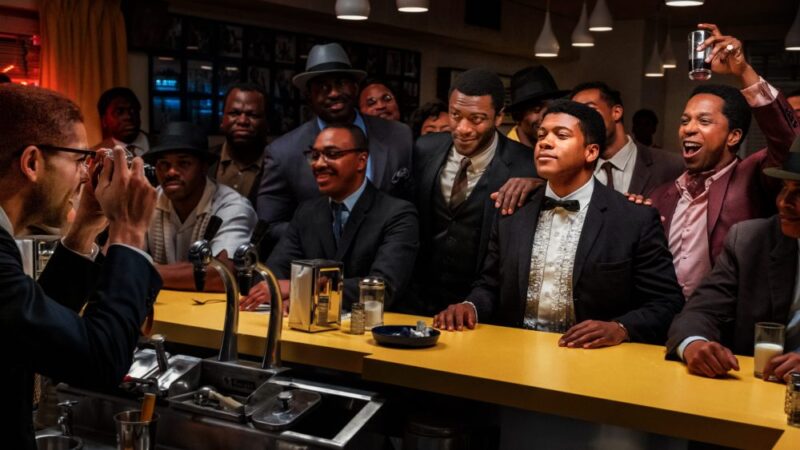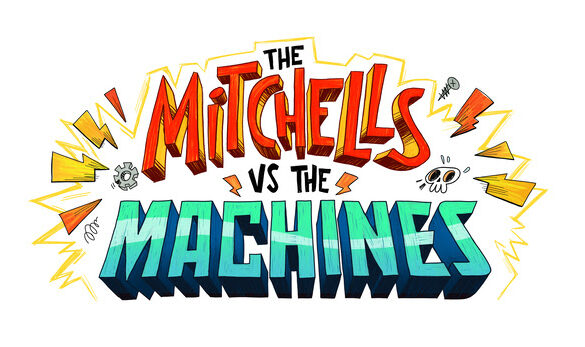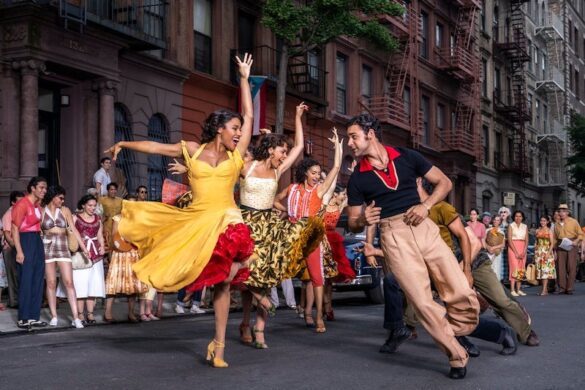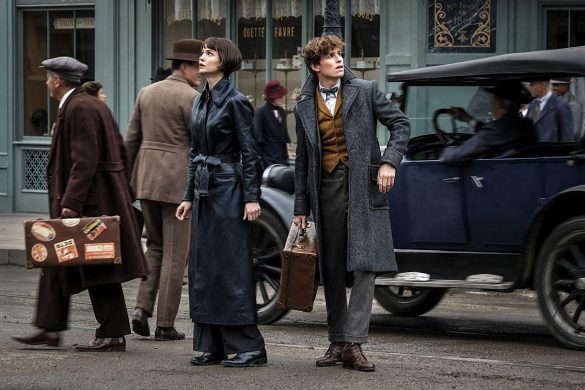A culture is not comprised of a single person’s experience, rather, it is made up of a collection of stories told from different perspectives that forms an identity that can be shared amongst the masses. It’s a sentiment that manifests in Regina King’s One Night In Miami. King’s theatrical debut, based on Kemp Powers’ play of the same name is based on true events where Muhammad Ali, Sam Cooke, Jim Brown, and Malcolm X discusses the responsibilities of being a successful Black person during the Civil Rights movement. Though a film that features four Black icons deserves something to be epic in scope, it’s takes a smaller approach by confining the four in a small space where their respective ideologies, philosophies and words are expressed in ways that creates a different kind impact and keeps you thoroughly engaged.
One Night in Miami flows effortlessly as the performances have you hooked. Each one of these real-life icons make a convincing argument as to what makes them successful and how they are contributing to the Black community. What the film lacks in exciting cliched climatic moments makes up for in its powerful performances. What’s more, the film is timeless in more ways that one. The devastating effects of systemic racism have not wained. This is especially true after a summer of horrific and unjustified brutality again Black Americans.
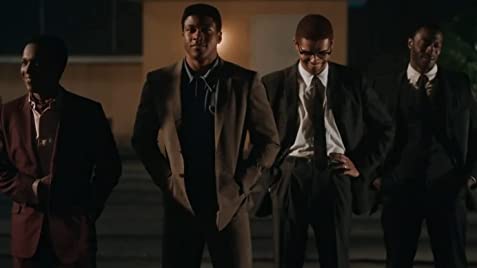
What’s important about One Night in Miami is that it doesn’t paint Black success as a rosy picture, but rather something that can be contradictory and flawed but also monumental and progressive. King opens with a small introduction of what the four experience in terms of achieving their own successes while also confronting crude and subtle racism. For instance, we see a cocky Ali (Eli Goree) fighting in a match against Henry Cooper. Although Ali has the upper hand, sportscasters are underestimating him.
It’s a different situation for Sam Cooke (Leslie Odom Jr.) who is about to perform Copa Cabana, a venue that has hosted very few Black artists. To make things even more challenging, stage managers won’t allow Cooke’s band to play on stage because of some arbitrary rule, and threatens to pull Cooke’s time if he doesn’t comply. They don’t recognize Cooke’s musical achievements because he hasn’t had a hit at the Copa. And by the time he gets to perform, dissatisfied audience members are either leaving or saying his song is better when sung by Debby Reynolds.
The next story centers on Jim Brown (Aldis Hodge), an all-star fullback visiting a white family friend. Everything seems cordial and seemingly progressive, until the family friends casually reveals he cannot let Jim into house because he’s black.
It then introduces us to a young Malcolm X (Kingsley Ben-Adir) who plans to leave the nation of Islam, even if that meant he would not have the support of his allies like Louis X. He needs this to work in order to get his message out. And, if everything doesn’t go according to plan, Malcolm could lose everything he owns.
It takes a near 17 minutes to reveal the title of the film, where the four icons converge in Miami on the night of Ali’s latest winning fight. Of course, such a win is a cause for celebration, which consists of drinking, music, and eating vanilla ice cream. And camaraderie between the four is akin to lifelong friends where they can insult each other in jest. But the night takes a slight turn when Malcolm reveals that celebration is meant for reflection. Something of which disappoints Jim and Sam. But it does so much more to reveal their experiences with systemic racism, and what they have done in order to share their successes with the Black community.
Goree nails the inflections and mannerisms of the charming and confident heavyweight boxing champ Muhammad Ali. Odom Jr.’s Sam Cooke an anomaly, whose voice is soothing to the soul but deep down is hurting. Hodge gives a solid performance as the level-headed Jim Brown, whose own experiences with racism helped shape his identity as well as keep others in check. And then there’s Ben-Adir, who is absolutely magnetic as the incomparable Malcom X.
There is a camaraderie between the four that helps establish the friendship on screen. These four can poke fun at each other with insulting jokes that have a slight tinge of respect to it. As the four talk, they divulge their respective achievements, psyches, and understandings of what it means to be Black during the Civil Rights movement. At the same time, the discussions reveal their vulnerabilities as well as contradictions that only give more depth to the characters and their words.
Within these contradictions lies a certain level of misunderstanding and ignorance. Malcolm X accuses Sam of shucking and jiving in order to be successful, not having once use his celebrity to sing about being oppressed. He even goes as far as playing and jamming to Bob Dylan song, “Blowin’ in the Wind,” and then asks how someone like Bob Dylan can write a song like that and be the number one hit. Of course, the answer isn’t so cut and dry, especially when Cooke uses his success to help open doors for other Black artists like himself to be just as successful.
It’s the kind of debate that has gone on for years. Defining that success isn’t cut and dry, and the film reveals that there are many different layers to it. Ultimately, we see that these icons are shooting for the same goal, but they all have a different way of getting there. What’s more, the film is an opportunity to show what the black experience is like through the lens of these icons, and it gives us a chance to see what they are like to see what their personal struggles were like when the celebrity status and pop luster is taken away.
Regina King directorial debut makes a conversation between four black men dynamically engaging. Not just in the performance, but in also the aesthetics and use of space. The film is based on Kemp Power’s stage play, and the film moves like one. Though this is a fictionalized meeting, there’s truth to what the movie is speaking about in terms of the black experience. And a lot of that has to do with the fact that it comes from Power’s experience as a black man. The film doesn’t need to overexpose the four’s status as icons in their respective fields, but rather, it lets us celebrate them as humans who are going through the same struggles as their fellow brothers and sisters, and how they choose to use their powers to overcome the systemic racism that plagues the place they call home.
“One Night In Miami” streams exclusively on December 25, 2020, and opens in theaters on January 25, 2021.
9/10

